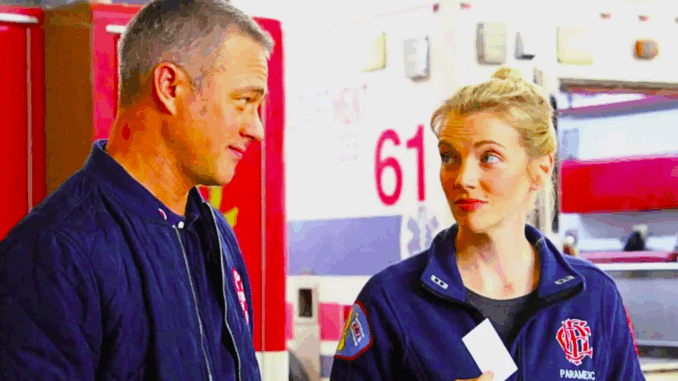
More Than a Paramedic: Brett’s Expanding Identity
Over the seasons, Chicago Fire has explored Sylvie Brett’s romantic relationships, medical expertise, and strong friendship dynamics. But one of the most transformative and quietly powerful arcs for her character was her decision to pursue motherhood—not through a traditional path, but by fostering and later adopting a child. It wasn’t a dramatic fire or a steamy romance that changed her the most—it was love born from responsibility and choice.
Brett’s emotional maturity has always been a subtle strength in the series, but this arc gave her new depth. When she began considering foster care, it wasn’t just about filling a personal void. It was an acknowledgment that her nurturing instincts didn’t need to be confined to romance or the ambulance rig—they could manifest in long-term, life-altering ways.
Fostering Julia: A Tender Yet Turbulent Chapter
The storyline really began to shift when Brett met Julia—a young girl whose mother was killed in a tragic accident. The initial interactions between the two were cautious but heartfelt. What made this arc so powerful was its realism. Brett wasn’t instantly perfect at parenting. She was scared, uncertain, and constantly questioning whether she was doing the right thing. And yet, she showed up, every day, learning and adapting.
The show deserves credit for portraying fostering not as a shiny rescue but as a deeply human, emotionally raw experience. Brett’s internal struggle—balancing work, her own emotional baggage, and a growing love for this child—was written and performed with incredible sensitivity. Kara Killmer brought vulnerability to the screen in a way that didn’t feel melodramatic but honest.
Conflict and Courage: Choosing Julia Over Comfort

The biggest test came when the child’s distant relatives attempted to claim custody. Brett could have easily stepped back, letting go of the emotional weight. But instead, she fought—for Julia and for herself. That moment symbolized a shift in her character: no longer just reacting to life’s changes, but actively choosing what kind of future she wanted.
This decision wasn’t about impulse or rescue—it was about responsibility. Brett had grown beyond the sweet, sometimes unsure paramedic we met in earlier seasons. She was now someone who could take charge of another life—not because she needed someone to love, but because she had love to give.
A New Definition of “Family”
Brett’s adoption storyline challenged traditional narratives on motherhood and family within network dramas. It asked a crucial question: What if your most profound relationship isn’t romantic or even professional—but parental? Chicago Fire didn’t rush this development. It let the love grow, and when Brett finally signed those papers, it was a tearful, quiet, triumphant moment that felt completely earned.
In a show where adrenaline often drives storylines, Brett’s slow, thoughtful path to motherhood was a reminder that some of the most powerful changes come from the heart—not the flames.